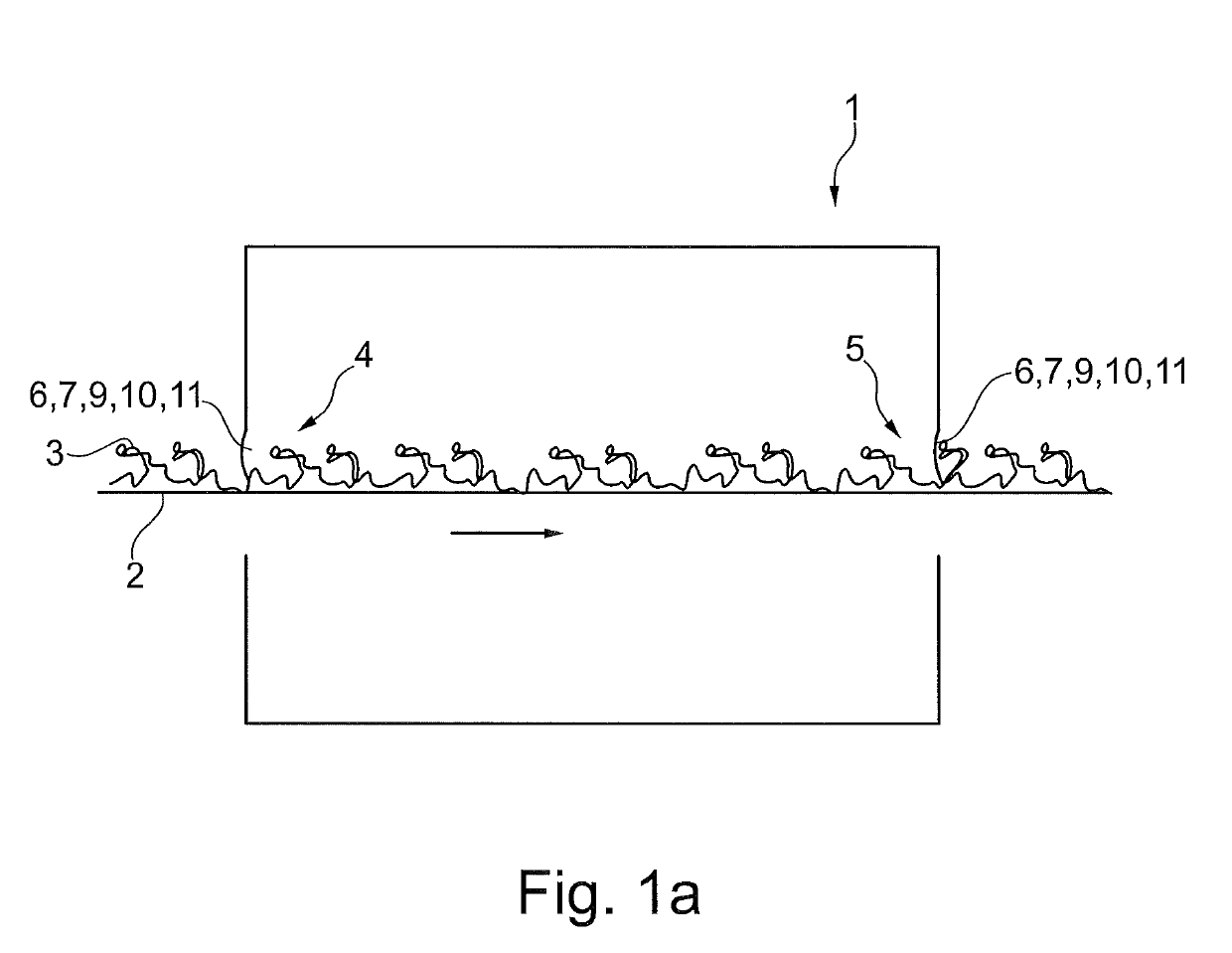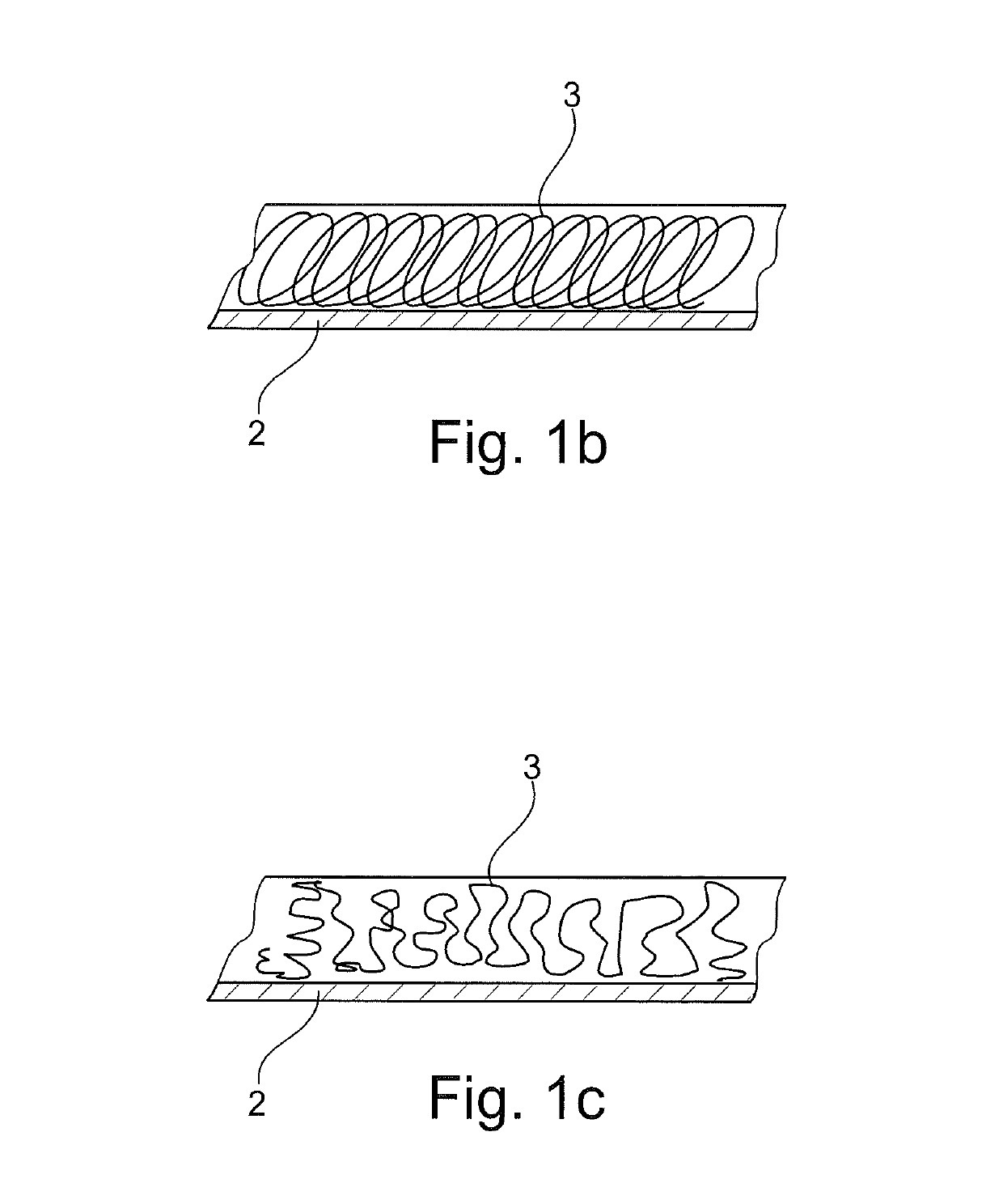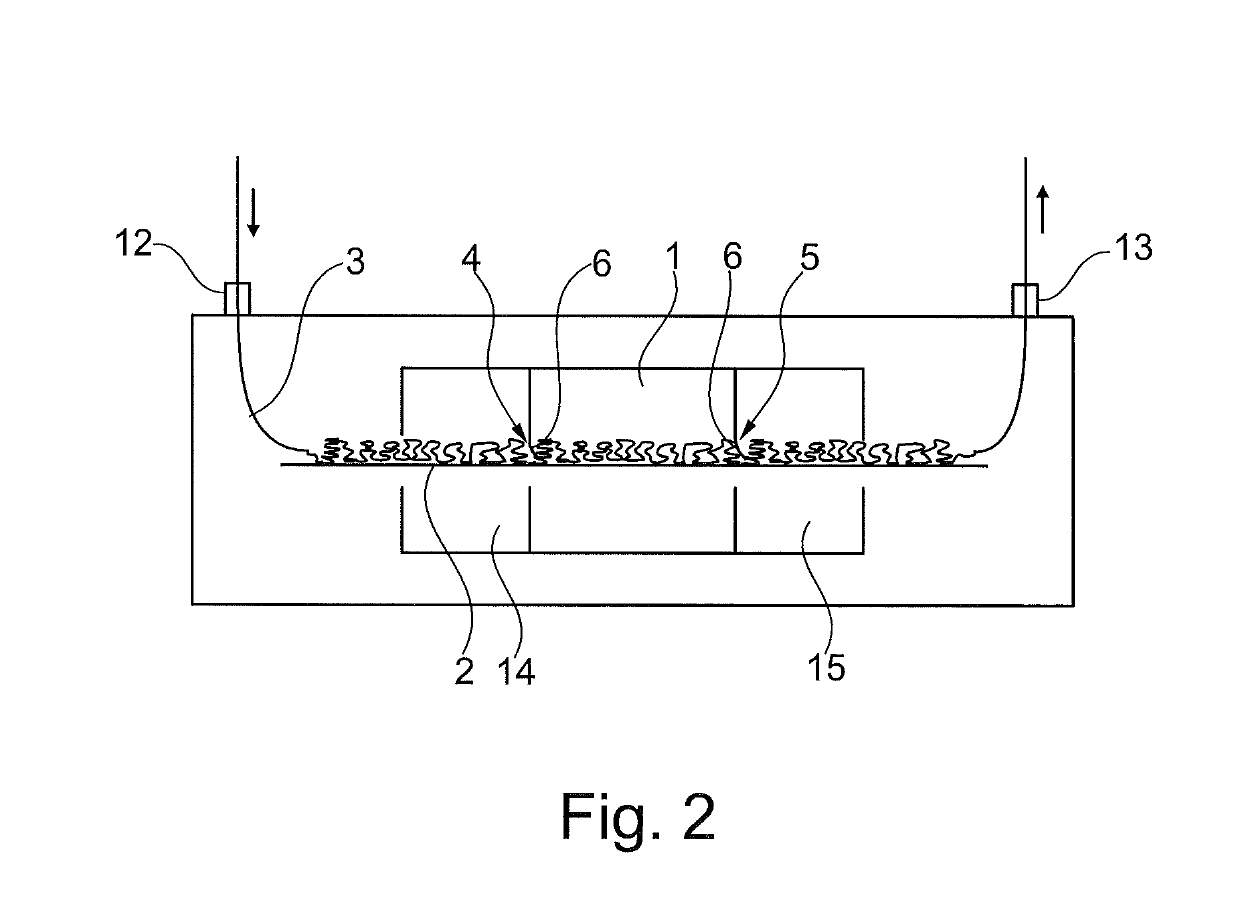Device for the thermal treatment of yarns
a thermal treatment and yarn technology, applied in textile treatment, textile storage in helical form, textiles and papermaking, etc., can solve the problems of shrink billowing of the thread, increase the volume of the thread, and make it difficult for cold external air to enter, so as to achieve low friction and not damaged, and low friction. , the effect of low friction
- Summary
- Abstract
- Description
- Claims
- Application Information
AI Technical Summary
Benefits of technology
Problems solved by technology
Method used
Image
Examples
Embodiment Construction
[0053]FIG. 1a shows schematically and in a much simplified form a device 1 for the thermal treatment of yarns 3.
[0054]Once the threads 3 have passed through a (not shown) shaping device and have been bent and / or crushed (crimped) three-dimensionally in a geometrically irregular manner, the thread mass lies on the transport means 2.
[0055]Of course, it is also possible within the scope of this application that the threads 3 are deposited linearly or in any other form on the transport means 2. FIG. 1b shows the depositing of yarn for so-called straight set threads, i.e. threads that are referred to as uncrimped threads disregarding the bending radii. FIG. 1c shows the deposit of frieze yarns which have a three-dimensional shape.
[0056]Lying on the transport means 2 the threads 3 first of all run through the inlet opening 4 and then the outlet opening 5 of the device 1 for thermal treatment which is operated by steam.
[0057]The heating is performed there up to the so-called heat-setting t...
PUM
| Property | Measurement | Unit |
|---|---|---|
| weight | aaaaa | aaaaa |
| bending rigidity | aaaaa | aaaaa |
| flexible | aaaaa | aaaaa |
Abstract
Description
Claims
Application Information
 Login to View More
Login to View More - R&D
- Intellectual Property
- Life Sciences
- Materials
- Tech Scout
- Unparalleled Data Quality
- Higher Quality Content
- 60% Fewer Hallucinations
Browse by: Latest US Patents, China's latest patents, Technical Efficacy Thesaurus, Application Domain, Technology Topic, Popular Technical Reports.
© 2025 PatSnap. All rights reserved.Legal|Privacy policy|Modern Slavery Act Transparency Statement|Sitemap|About US| Contact US: help@patsnap.com



